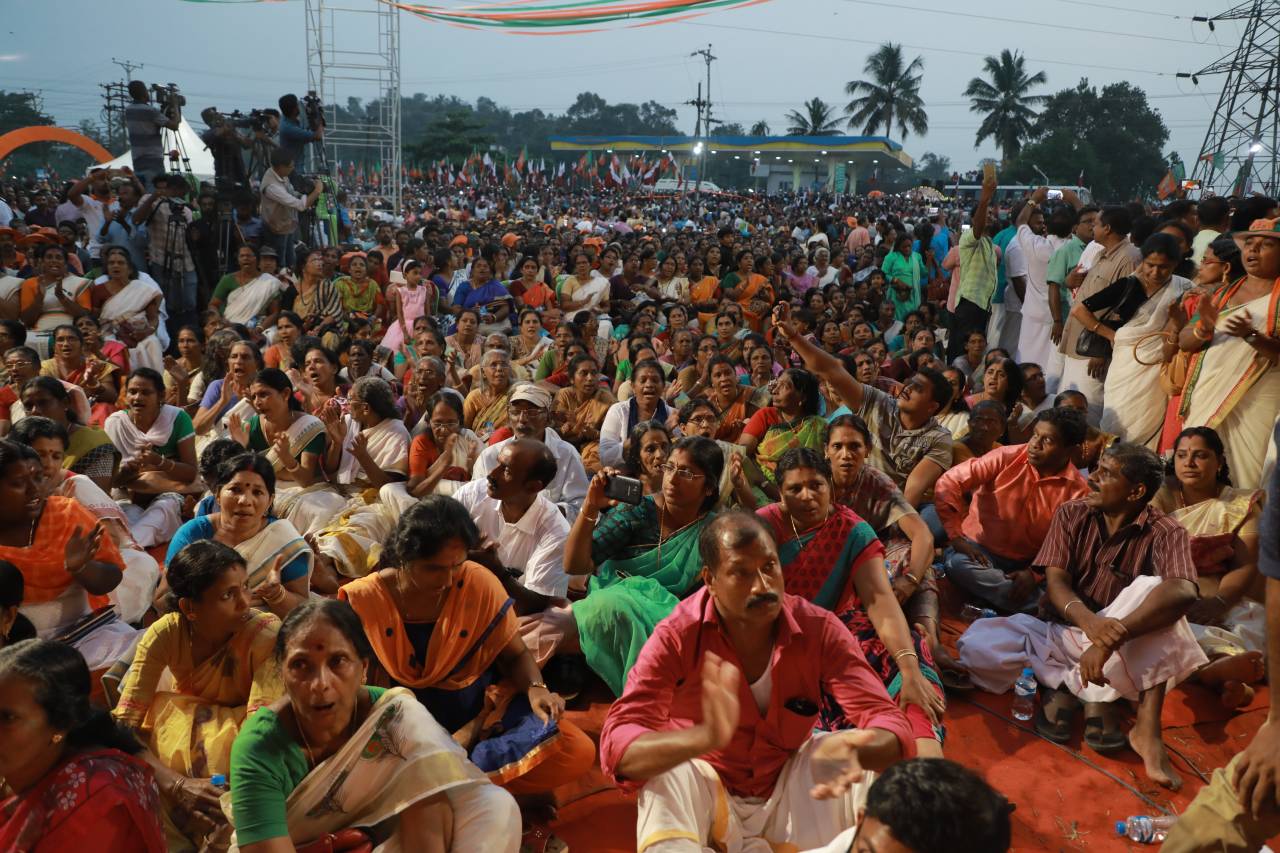An open letter to Justice (rtd) Dipak Mishra, Justices Chandrachud, R Nariman and Khanwilkar
Dear formerly respected Justices,
Sometimes one wonders what goes through the minds of the judges when they pass any judgment which may be perfect legally, but is actually devoid of justice. For example, when Bhagat Singh, Rajguru and Sukhdev were sent to the gallows, or when the Bishop of Jalandhar Franco Mulakkal was set free. Is morality and faith to be judged on an agenda or should one actually see if anyone is actually physically or mentally tortured because of such faith or morality? Who should receive Justice? Rehana Fathima or Trupti Desai for losing sleep because of a dent to their ego and so should receive ‘justice’ or the nuns who actually were raped for years, tortured physically and mentally and so should receive justice?
 I would like to read some words from your judgments and then share some pictures and news, so that as learned judges, you’ll understand why the common man is complaining about your judgment on the Sabarimala case.
I would like to read some words from your judgments and then share some pictures and news, so that as learned judges, you’ll understand why the common man is complaining about your judgment on the Sabarimala case.
CJI Dipak Misra and Justice Khanwilkar: “Devotion cannot be subjected to gender discrimination. The court also said that a patriarchal notion cannot be allowed to trump equality in devotion. Religion is a way of life basically to link life with diversity.” It is obvious that “equality in devotion” were the magic words. But since the day of judgment, it is equally obvious that equality was nowhere in the picture. The judgment was just an excuse for the Pinarayi Government to trample upon the feelings of the true devotee. The chosen women were more equal than others and the media too played to the sentiments of the Communist regime instead of being sympathetic to the devotees. Who should the police protect? The ‘chosen women’ were there to trample upon the faith of the masses, or the innocent devotees who were trying to protect their traditions?


Justice D Y Chandrachud: He said all individuals were created equal. “To exclude women from worship by allowing the right to worship to men is to place women in a position of subordination. The Constitution should not become an instrument for the perpetuation of patriarchy.” He also termed the custom as a form of “untouchability” which cannot be allowed under the Constitution. “Article 17 certainly applies to untouchability practices in relation to lower castes, but it will also apply to the systemic humiliation, exclusion and subjugation faced by women. Popular notions about morality can be offensive to dignity of others.”
It sounds so well-meaning except for the fact that Sabarimala was one temple where neither untouchability, nor caste factor, nor religion, nor sex ever had any meaning. Yes, women of a certain age were prohibited, but definitely not all women. In any case, let us see what happened to those women devotees who were always allowed to enter the temple. Were they allowed to enter after the aforesaid ‘wondrous’ words? No! Look at what happened to Sasikala Teacher (who is above 50 years of age) who is a true devotee of Ayyappa Swamy – she was treated as a common criminal and not allowed to take Darshan. Justice?


Please see how a little girl Malliarjun is sleeping on the road next to a dustbin, because the police saw to it that the roads would be kept wet so that no devotee would rest there; because the administration saw to it that there would be no food stalls open, no water in the taps, no toilets and no resting place. Justice?
Justice R Nariman: He said “Ayyappa devotees do not form a denomination, but they are only a part of Hindu worship. Women of all ages are equal worshipers of Lord Ayyappa and hence gender cannot be a ground to prevent the entry of some into the temple on the ground that they were of a menstruating age. The Sabarimala temple custom of barring women in the age of 10 and 50 years is not backed by Article 26 of the Indian Constitution. Moreover, a woman has an equal right to worship.” Really? Where is Article 26 when it comes to making women as Bishops or Cardinals or Qazis or Syednas? Do you have women priests in Parsis, who are allowed to tend to the fire? What about Parsi clubs (like Ripon Club) where women cannot even be anything other than Associate members? Readers are requested to read https://www.thehindu.com/news/cities/mumbai/the-conflict-within-parsis-and-gender-rights/article18520582.ece to know more … Hypocrisy or justice?
BTW this is what Zoroastrianism says about menstruation … Menstruating women “shall clear the way of the wood there, both plants and trees; they shall strew dry dust on the ground; and they shall isolate a half, or a third, or a fourth, or a fifth part of the house, lest her look should fall upon the fire.” As to the question of how much distance they should maintain with things and people, he replied that they should stay “‘Fifteen paces from the fire, fifteen paces from the water, fifteen paces from the consecrated bundles of Baresma and three paces from the faithful. The women who bring food to such women should maintain a distance of three paces. The food and drink should be brought to them in vessels of brass or lead or any metal. If a child touches them during this period, his body and hands should be washed. The Vendidad ascribes the following instruction to Ahura Mazda Himself, “Whosoever shall lie in sexual intercourse with a woman who has the whites or sees blood does no better deed than as if he should burn the corpse of his own son, born of his own body and dead of naeza, and drop its fat into the fire.”” … (Taken from hinduwebsite.com).
The fact is that the Sabarimala judgment and various other judgments pertaining to the Hindu faith have made a mockery of the Constitution’s desire to provide for a system which is Fair to All and Unjust to None. And this has been because of the way the Constitution has been interpreted by the ‘honourable’ judges. When there is no physical or mental harm to members of a faith, should the Judiciary even deem it fit to Judge? And should the Judiciary then not be held responsible for the atrocities that follow based on such judgments? Today when the Kerala State Government arbitrarily puts devotees in jail and tortures devotees by preventing them basic human rights, who should be held responsible? Will you hold yourselves responsible for overstepping your brief, dear Judges? Will even one of you think it fit to persecute the CM of Kerala, suo moto?
Earnestly,
A common citizen whose faith is trampled upon by your judgments
















Discussion about this post